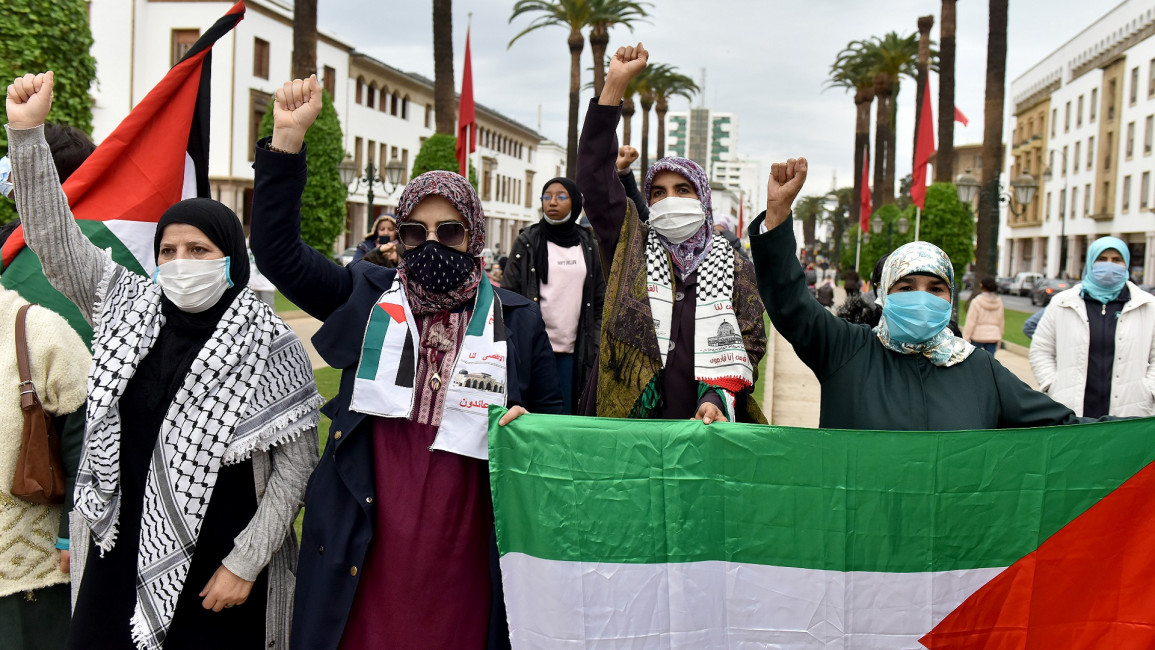Moroccan Islamist movements, including branch of government party, condemn Israel normalisation deal
Moroccan Islamist groups, including factions from Prime Minister Saadedine Othmani’s Justice and Development Party (PJD) have strongly condemned Morocco’s recent decision to normalise ties with Israel.
The Unity and Reform Movement, which is the PJD’s educational and charitable arm, called the normalisation agreement “deplorable” and condemned “all attempts at normalisation and Zionist infiltration”.
Morocco’s announcement that it was normalising ties with Israel came as the US said that it will recognize Morocco’s sovereignty over the disputed Western Sahara region, where the pro-independence Polisario movement has been in conflict with Moroccan forces since the 1970s.
While the PJD, which is considered a moderate Islamist party, is the main partner in Morocco’s coalition government, Moroccan King Mohammed VI has the final word over foreign policy decisions.
Read more: Moroccan schools to teach Jewish history and culture
After two days of silence following the announcement of the Israel deal, the PJD released a statement praising the king’s recent diplomatic efforts and calling US recognition of Morocco’s sovereignty over Western Sahara “an important decision” which could “strengthen Morocco’s position in international circles. It also further isolates the adversaries of our territorial integrity”.
|
|
The UN and most of the international community have never recognised Morocco’s claim to Western Sahara.
The PJD statement however, said that it stood “firmly against the Zionist occupation” of Palestinian territory adding that recognition of Morocco’s sovereignty in Western Sahara should not come at the expense of the Palestinian cause.
The statement said that the PJD’s position on Palestine would not change and denounced Israel’s continued “crimes” against the Palestinian people, mentioning continued attacks on Jerusalem’s Al-Aqsa Mosque, the confiscation of Palestinian land for settlements, and Israel’s refusal to recognize the right of return of Palestinian refugees.
Another Islamist group, the Adl wal Ihssane (Justice and Spirituality) movement, which is outlawed but tolerated by Moroccan authorities and has a large following, condemned the deal as a “stab in the back for the Palestinian cause.”
On its website, it announced its support for planned demonstrations against the deal due to take place on Monday.
Moroccan Foreign Minister Nasser Bourita has given interviews to Israeli media praising the normalisation deal and characterising it as a “resumption” in relations.
Morocco and Israel have never had full diplomatic relations but informal relations have existed since the 1980s at least. Israeli experts are believed to have assisted Morocco in building a heavily fortified, 2,700 kilometre long “berm” or sand wall in the Western Sahara, which has been largely successful in preventing Polisario guerrillas from entering the Moroccan-held side of the disputed territory.
Follow us on Facebook, Twitter and Instagram to stay connected

![Widespread famine is imminent in Gaza [Getty Images]](/sites/default/files/styles/image_330x185/public/2024-03/GettyImages-2015647000.jpg?h=199d8c1f&itok=mJWWP_Td)

